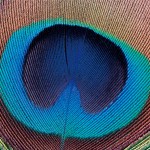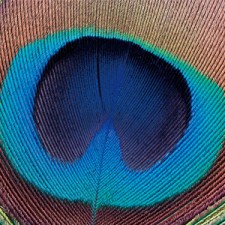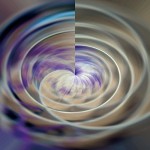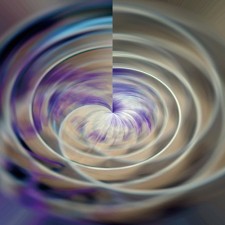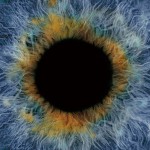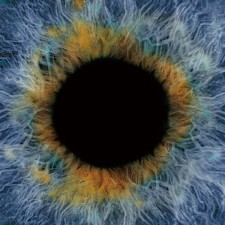◉ Machines are not “mysterious” in the same way as animals or plants. Why? Because we humans built them from scratch… But is that really true?
◉ The boundary between the natural and the artificial is vague. The “rich, natural countryside” is beautiful precisely because it is carefully managed by hand, and the tea ceremony, which is considered the epitome of Japanese culture and is said to revere nature and the passing of the seasons, requires extensive efforts to maintain the appearance of naturalness. On the other hand, if humans too are part of nature, then everything made by man using natural materials will also be an extension of nature. To take a somewhat rough example, are those selectively bred houseplants in your living room natural or artificial?
◉ Once you start thinking like this, it becomes difficult to say that manmade objects lack mystery. For example, one fashionable mystery is “why do airplanes fly?” And it is not just airplanes – in fact there are many machine-related areas where the question “why” cannot be answered. Long before we can answer such questions, we build and operate machines based on our experience about “what happens.” Often, we are unsure about how much we really know, so we make simulations and build prototypes in order to confirm “what happens.” Science and technology are less about explaining “why” than about knowing “how.”
◉ These days, it is even difficult to claim that machines are made by man. If we were to drift ashore on a desert island, it is doubtful most of us would be able to make as much as a nail, no matter how blessed with natural resources the island was. Making fire would be a major challenge. And never mind how “man-made” you call them, we couldn’t build a TV set or a computer in a hundred years. All the products of modern civilization that urban people use everyday are actually filled with amazing wonders and mysteries, when you examine them as a single human being.
◉ The 20th century is sometimes called the century of invention, and in particular the machines (or products) of the past 50 years have transformed our lives dramatically. But when you take a closer look at what really happened, it turns out that there was only a handful of truly revolutionary inventions. Mostly, it was a question of compactification and automatization. The evolution from old-style telephones to mobile phones is symbolic, but the fundamental function remains the same. This compactification and automatization was brought about by machines that make other machines. That is to say, machines are no longer made by man. For mankind today, contemporary society is a new kind of nature that is filled with wonders.
◉ Some plants grow vigorously and spurt fruits and beautiful flowers, while others soon wither and die, even though they are cultivated in the same way. Some people always succeed with their plants, while others invariably fail. The former are said to have “green thumbs,” and it is sometimes rumored that the reason is that they are especially good at communicating with their plants. Then there are people who frequently cause their computers to freeze at the office, and housewives whose light bulbs soon go out. It is not because these people handle their machinery in any rough way at all, it is just that machines tend to break down when they touch them. Such stories are not uncommon. There is a famous legend about the physicist Wolfgang Pauli that the laboratory equipment would cease to function normally whenever he was nearby. Naturally, there are the opposite kind of people too, people with a special affinity with machines. Perhaps they have “silver thumbs.”
◉ As yet, there are no signs that personal computers or mobile phones have feelings or a consciousness, but there is no denying that humans and machines may have begun communicating in a broader sense beyond simple input and output. Although weak, the human body too forms electric and magnetic fields, and it would not be strange at all if they started interacting and “sympathizing” with the fields of machines.
◉ While machines used to be made by man and their functions and dispositions were obvious, today’s machines are already far from self-explanatory even when actually manufactured by hand. Soon we may need a new “mechanology,” like botany and zoology, or meteorology and astronomy, to explain machines as a second kind of nature. And before we know it, perhaps our household appliances will start dreaming of electric sheep, just like Philip K. Dick’s androids.









